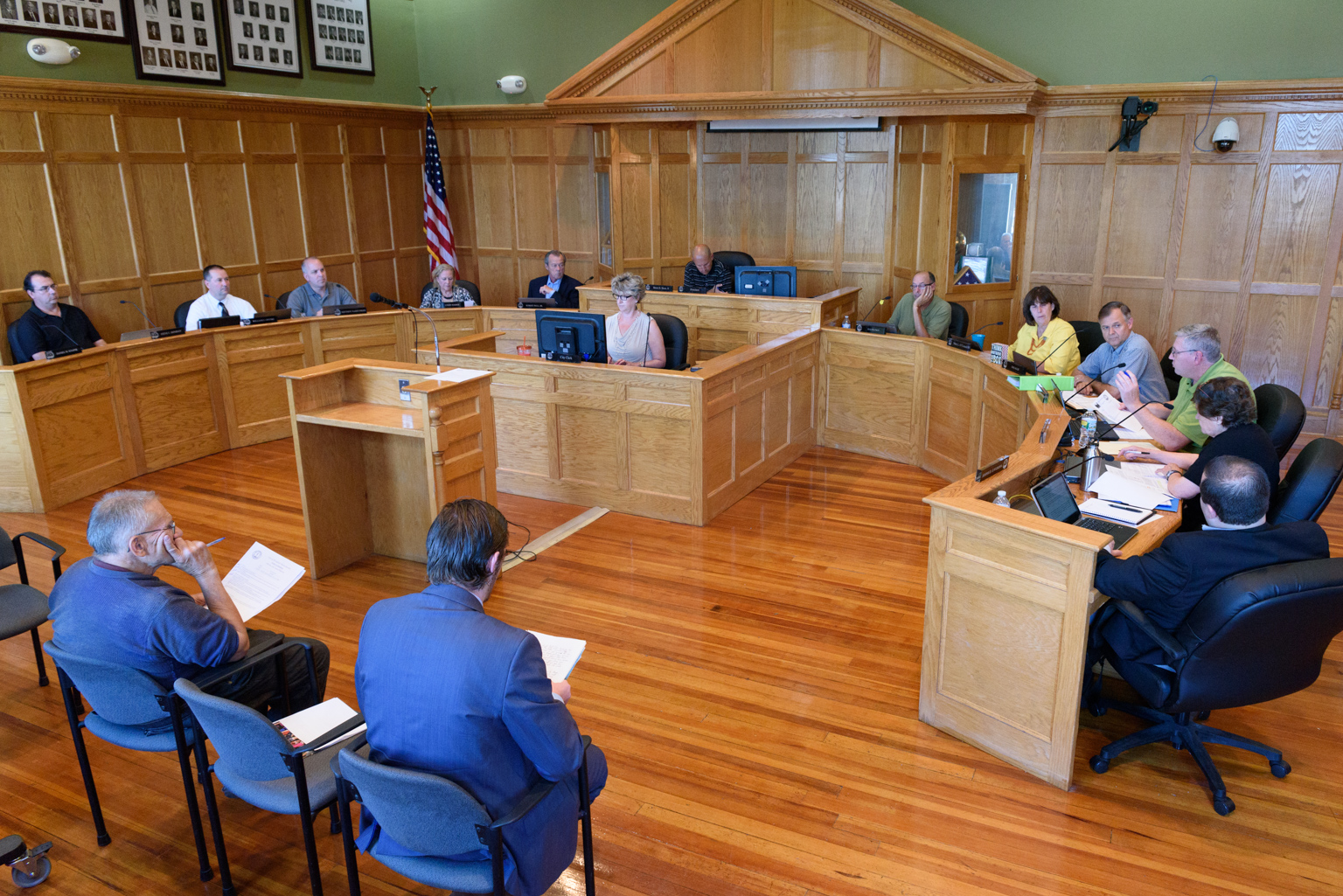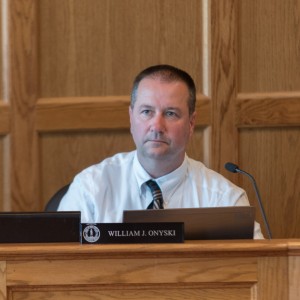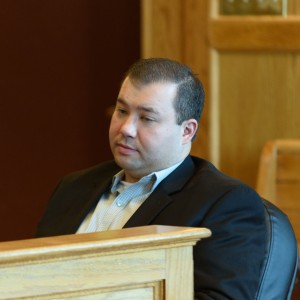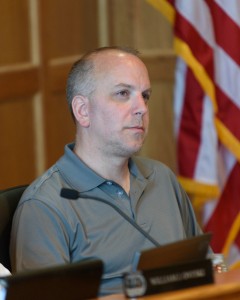WESTFIELD – At the start of Thursday’s Special City Council meeting for final passage of the FY17 Budget, Mayor Brian P. Sullivan asked to address the council. He thanked them for their time, effort and work on budget deliberations, noting the diligence they had taken to review all departments and issues this year.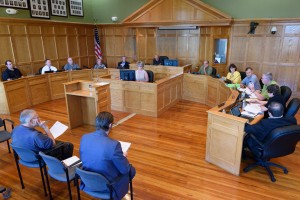
Sullivan asked for $500,000 in Free Cash to be transferred into the budget, which would leave more than $1 million in the account, and for all remaining Free Cash from FY16 to be moved into stabilization, which he said would give the Council more authority as to its use, as transfers from stabilization require an affirmative vote of nine rather than seven.
Sullivan also asked the councilors to approve the Meals Tax, which increases the 6.25% tax to 7%, allocating the .75 increase to the city, and bringing in an additional $450,000 in revenue for FY17. He acknowledged that there were letters from city restaurants asking to defeat the tax increase. Sullivan said he had spoken to each of the restaurant owners, but felt that the city needed to take advantage of the usage tax opportunity now.
Ward 6 Councilor William Onyski asked Sullivan what his intention was for the new revenue, acknowledging that it can’t be earmarked.
“It will be going to Free Cash, but my commitment to you will be to use it for roads. As that money comes in, and as we document it, we will use it for infrastructure,” Sullivan said.
The council then voted to approve the transfer of Free Cash into the budget and the remainder from FY 16 into stabilization.
During the discussion on the Meals Tax, Ward 3 Councilor Andrew K. Surprise continued his vocal opposition to the new tax.
“We’re not solving our city’s problems with this. It’s a one-time bump, that sends an anti-business message,” Surprise said.
At-large Councilor David Flaherty called it “a nickel and dime tax” that sends the wrong message. He said the city has a history of raising taxes “more and more,” and that several councilors had already voted no to this tax three or four times.
At-large Councilor Daniel Knapik countered that at the time of previous “no” votes, the city had been in the grips of the recession, and that now all the neighboring cities have already adopted the tax.
“Down in Boston, they’ve said to me, why should we help you down in Westfield, when you won’t help yourselves,” Knapik repeated. He said the needs in the city were “gargantuan,” and also that with great regularity, charges in gas and electric go up, and nobody says “boo.”
“75 cents on a $100 dinner bill, I don’t think personally anybody’s going to have a problem with that,” Knapik added.
“I don’t like new taxes. But I think with the Mayor’s commitment to put it towards roads and infrastructure, that sways me,” said Onyski.
“I’m confused. On the one hand, people say we’re on the verge of bankruptcy and approaching the levy ceiling, and on the other hand, we don’t need this money. We need this money,” said At-large Councilor Stephen Dondley.
“I’ve heard this several times about not going to the state and taking advantage. Yet I don’t see any proof whatsoever that people who have this tax get more state aid,” Flaherty said. He also said there is no way to earmark this money, and even though he trusts Sullivan to use it for roads, no future mayors would be obligated to use it for infrastructure.
Ward 5 Councilor Robert A. Paul said he would approve the tax because the city needs the $400,000 in anticipated income, and that the mayor would use it for the infrastructure.
“Rather than raising taxes, we have to reduce spending,” added Surprise. The vote for the Meals Tax then passed 7 to 5.
Public participation was invited prior to the vote on passage of the budget.
21-year-old resident Mark Butler, who ran for At-large City Councilor in the last election, asked why Westfield had to solve every one of its problems with taxing. He said his parents were planning to move out of Westfield due to the rising costs of living in the city.
“The real issue is that Boston is not giving us the money we need for infrastructure. We need to find new routes to solve these problems,” Butler said.
Joe Giffune, president of the Friends of the Columbia Greenway Rail Trail, said he was concerned about the changes in commitment to the project expressed by the City Council. He said by recommending to cut the engineering budget by $240,000, the city came close to cutting the money earmarked for the Rail Trail.
“Don’t underestimate the importance of the Rail Trail to Westfield,” Giffune said.
Following Giffune, City Engineer Mark Cressotti also came to the podium, thanking the City Council for their diligence and hard work. He said the money in the engineering department goes towards development of larger projects that will bring in $8 to $10 million from the state. He added that cutting funding was not the appropriate way to address problems some councilors may have with individual projects, and invited them to come to engineering with their concerns.
Following these comments and prior to the vote on the FY17 budget, At-large Councilor Matthew T. VanHeynigen made an amendment to reconsider the previous evening’s vote on the recommended cut to $240,000 in engineering, which had failed to pass.
VanHeynigen said one councilor had expressed confusion to him in the vote on the recommendation, and had not voted as wished. The vote on Wednesday had been 7 to 6 against the recommended cut.
Following a back and forth as to whether a new vote was legitimate, the vote was taken with the same result at a greater margin of 8 to 5 against the cut to engineering.
The vote then proceeded for the final passage of the FY17 budget.
Flaherty said he had intended to propose additional cuts to the budget, which the process allows councilors to do.
“We have to control spending,” Flaherty said, adding that the $106,000 was not enough in cuts, requiring the Free Cash transfer in order to balance the budget.
After some further discussion, the FY17 Budget passed with a vote of 9 to 4.

